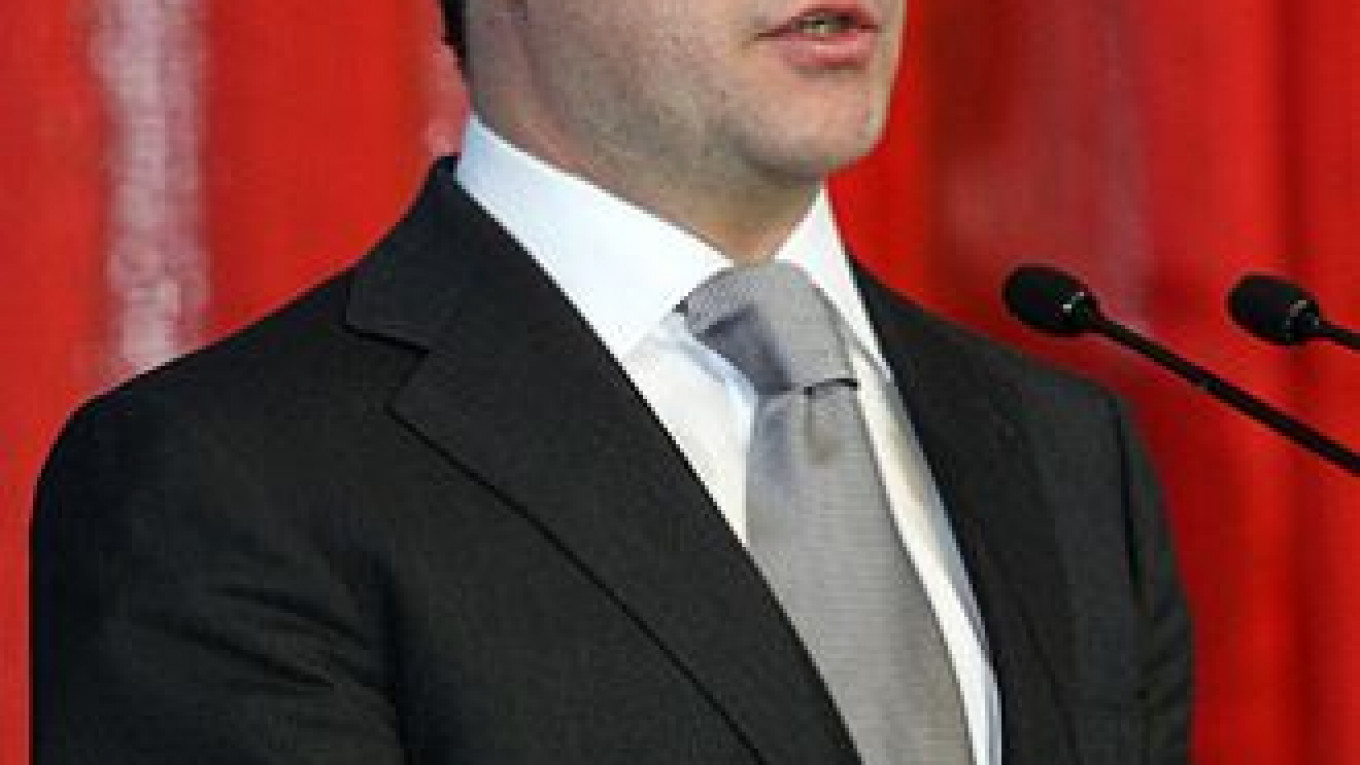Prime Minister Dmitry Medvedev has ordered the government to find ways to reduce bureaucratic obstacles to regional investment amid a drive to boost regional economies.
Medvedev has called for the Economic Development, Finance and Regional Development Ministries to present proposals to increase regional investment, RIA-Novosti reported Monday, citing the prime minister's written orders. The orders had not been published on the prime minister's website late Monday.
A key measure requires the Economic Development Ministry to draft proposals to abolish the superfluous powers of the regional branches of federal agencies that create obstacles to investment.
The proposals should be presented by March 14.
Regional officials said the investment climate in the regions often depends on the direct actions of regional leaders rather than the system.
"There are some prosperous regions where the situation is good, but it is not because of the system that is in place but because of certain governors who deal personally with the issue," said Denis Molotkov, deputy mayor of the western Siberian city of Tomsk.
Molotkov, who is also a member of Delovaya Rossiya, a lobbying group of small- and medium-sized businesses, said regional economies are mature enough to grow without the need for such a hands-on approach. He was echoed by Viktor Zubaryev, United Russia member and Duma Deputy, who said many an investor currently has to rely on having a personal relationship with a governor. "He [the governor] gives out his private phone number, and the investment climate changes," Zubaryev said.
Zubaryev said Medvedev was taking the right approach because it would be easier to boost investment by cutting red tape rather than simply waiting for each region to find its own way to market itself.
Foreign direct investment shrank 14.4 percent in 2012 compared with 2011, according to State Statistics Service data published in November. Overall, foreign investment totaled $114.5 billion, including $12.3 billion in foreign direct investment, in 2012.
The key obstacles to investing in Russia are workers' poor knowledge of English, red tape and corruption, according to a survey of 195 foreign top managers by the Economist Intelligence Unit. The research was carried out in May on behalf of aluminum giant RusAl.
Darya Pichugina, an analyst with Investcafe, a consulting group that advises investors, said the lack of qualified staff is among the biggest problems."The regions can't offer competitive salaries," she said.
Medvedev's orders partly address the staffing problem. He ordered for the Education and Science Ministry to work with the Labor and Social Services Ministry to create a program to educate regional bureaucrats on how to attract foreign investors.
Medvedev also wants the Economic Development Ministry to propose legislation to stimulate state support for industrial parks. Last week, he instructed Deputy Prime Minister Arkady Dvorkovich to work on proposals to create an ambitious industrial park in the Krasnoyarsk region as presented during this month's Kranoyarsk Economic Forum, Interfax reported Monday, citing Dvorkovich.
The park, which will host mining, gold and forestry producers, will cost 272.1 billion rubles, of which the majority would come from private investors. The project is expected to create 6,500 jobs.
Contact the author at a.bratersky@imedia.ru
Related articles:
A Message from The Moscow Times:
Dear readers,
We are facing unprecedented challenges. Russia's Prosecutor General's Office has designated The Moscow Times as an "undesirable" organization, criminalizing our work and putting our staff at risk of prosecution. This follows our earlier unjust labeling as a "foreign agent."
These actions are direct attempts to silence independent journalism in Russia. The authorities claim our work "discredits the decisions of the Russian leadership." We see things differently: we strive to provide accurate, unbiased reporting on Russia.
We, the journalists of The Moscow Times, refuse to be silenced. But to continue our work, we need your help.
Your support, no matter how small, makes a world of difference. If you can, please support us monthly starting from just $2. It's quick to set up, and every contribution makes a significant impact.
By supporting The Moscow Times, you're defending open, independent journalism in the face of repression. Thank you for standing with us.
Remind me later.






